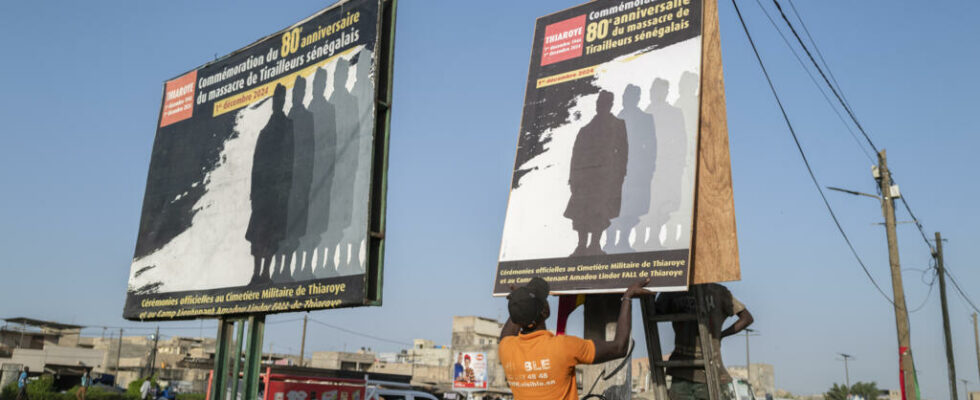Senegal commemorates this Sunday, December 1, the 80th anniversary of one of the worst colonial crimes in its history. On December 1, 1944, the French army opened fire on its own soldiers, African riflemen who were demanding payment of their pay. Eighty years later, while many gray areas still persist over the course of the events and the number of victims, the authorities, who came to power last April, want to inscribe this event in the collective memory.
2 mins
With our correspondent in Dakar, Léa-Lisa Westerhoff
Everywhere in the capital, for ten days, we can see a poster announcing the commemorations of this Sunday, December 1, with Chinese shadow figures of the African riflemen. A sign of the very strong commitment of the Senegalese authorities to rehabilitate this traumatic event in collective memory.
“ The decision to commemorate is a political act », explained a few days ago the historian Mamadou Dioufwho chairs the commemoration organizing committee and who will open the speeches this Sunday morning. “ It is an act of sovereignty which expresses the need to reclaim one’s history », while France is accused by the Senegal for having spent 80 years trying to make this crime forgotten.
Also readThiaroye massacre in Senegal: the testimony of Biram Senghor, the last known descendant of the victim
Shedding light on the truth
In this sense, recognition by Emmanuel Macron that a “ massacre » took place on December 1, 1944 in Thiaroye is an important step, but insufficient for the Senegalese authorities, who are demanding the truth about the number of deaths and the unfolding of the events.
Dakar therefore created a committee of Senegalese historians and archivists, responsible for re-examining all the archives available on this tragedy. Its mission will be to try to shed light on the number of deaths – 35 officially, between 300 and 400 according to several historians – and how the events unfolded. This commission will report in March 2025.
The commemoration of this Sunday is important, but it will take place without the president Emmanuel Macron. It is the Minister of Foreign Affairs, Jean-Noël Barrot, who will represent him.
The ceremony will also take place without the leaders of the Alliance of Sahel States, who should be represented by their Prime Minister, while many of the riflemen killed on December 1, 1944 were Malians, Nigeriens and Burkinabè. The presidents of Mauritania, Mohamed Ould El Ghazouani, of the Gambia, Adama Barrow, and of Guinea-Bissau, Umaro Sissoco Embaló, will be present.
Also readOur file on the Thiaroye massacre
